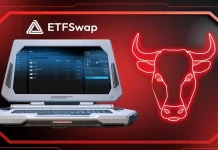
Holochain recently announced support for Local-first software. According to the official post, Holochain will be helping computers stay networked locally.
The motivation behind the step is simple, why should local networks lose access to information if the internet goes out? In such cases, locally connected devices should be able to use Slack to interact with people in the next room using the same WiFi.
Since Holochain apps operate P2P, they do not rely on a central server. The app’s network scales to whatever device can actually connect at the moment. It means that forming a local connection over the networking protocol allows users to share from Bluetooth to TCP/IP.
This way, users can easily connect with each other in the next room. As expected, the news has garnered interest among smart device users globally. The development has also boosted the Holo price prediction for the coming months. Currently trading at 0.00135 dollars, Holo is expected to gain market value after the support goes live.
One major use case of the functionality offered by Holochain is disaster response. In scenarios such as wildfire, hurricane, earthquake, or other disasters, the communication infrastructure is bound to be disrupted.
That is why it is crucial to have a local form of communication, sensemaking, and data collection method set up. Generally, emergency services stay limited to radio, which can be useful, but boasts several restrictions.
Thus, integrating mesh networks and Holochain apps before a disaster can help local individuals to remain in touch even if the infrastructure fails. According to Holochain, this technology opens opportunities to help local communities in disastrous situations.
The efforts in the Cajun Navy became a testament to it recently, where this technology was instrumental during the hurricane relief efforts.


